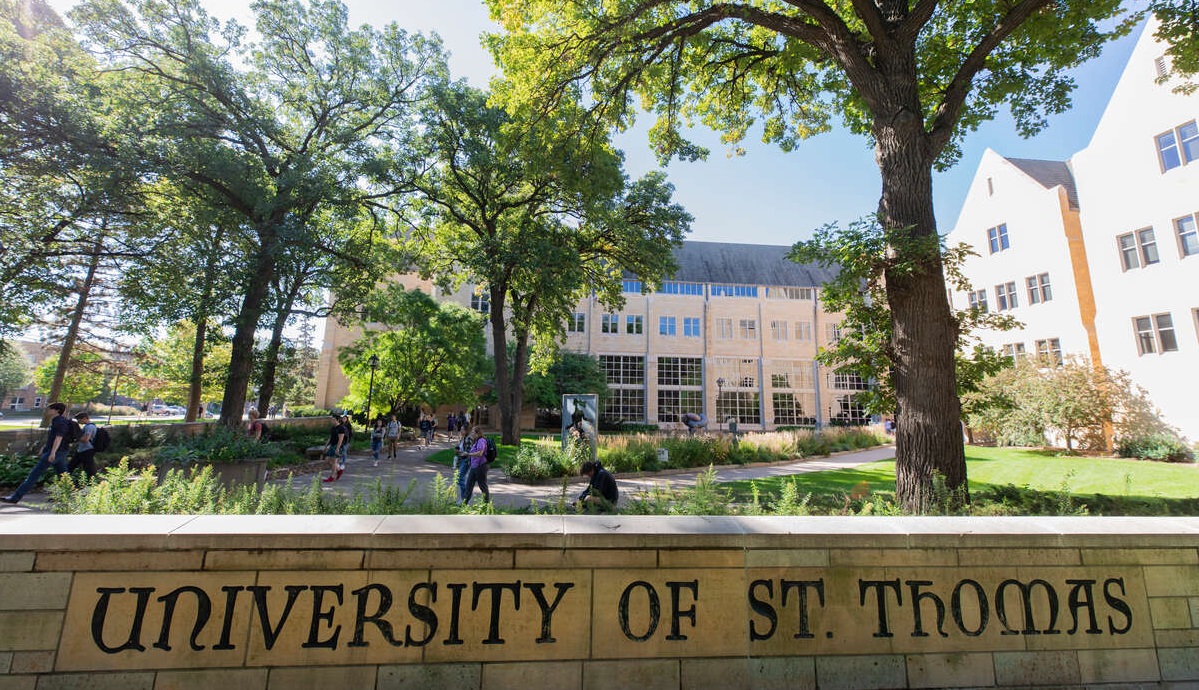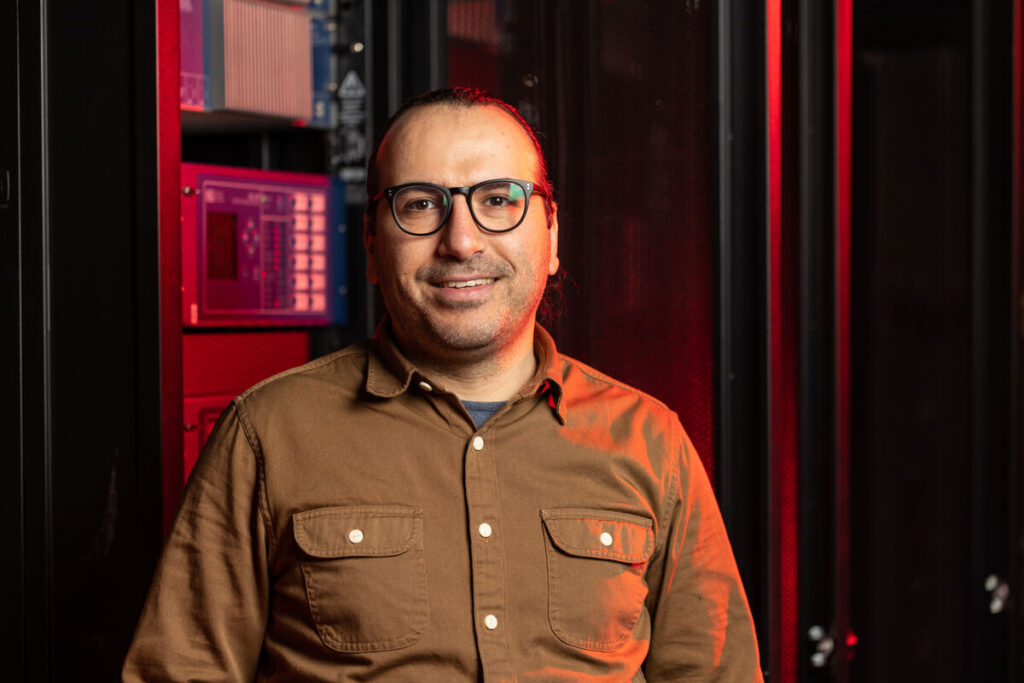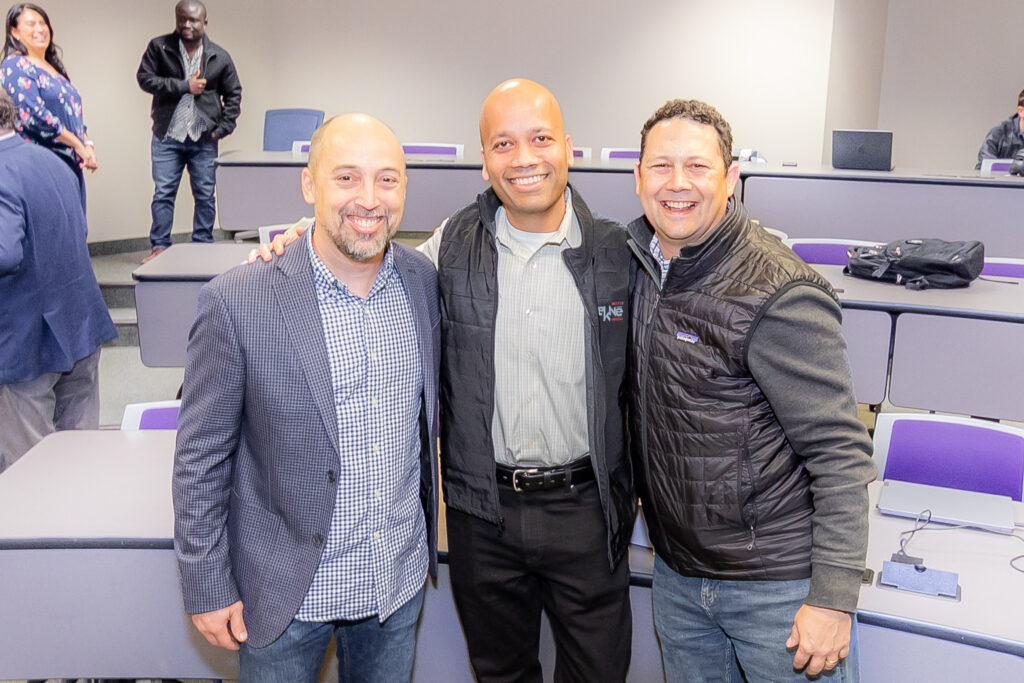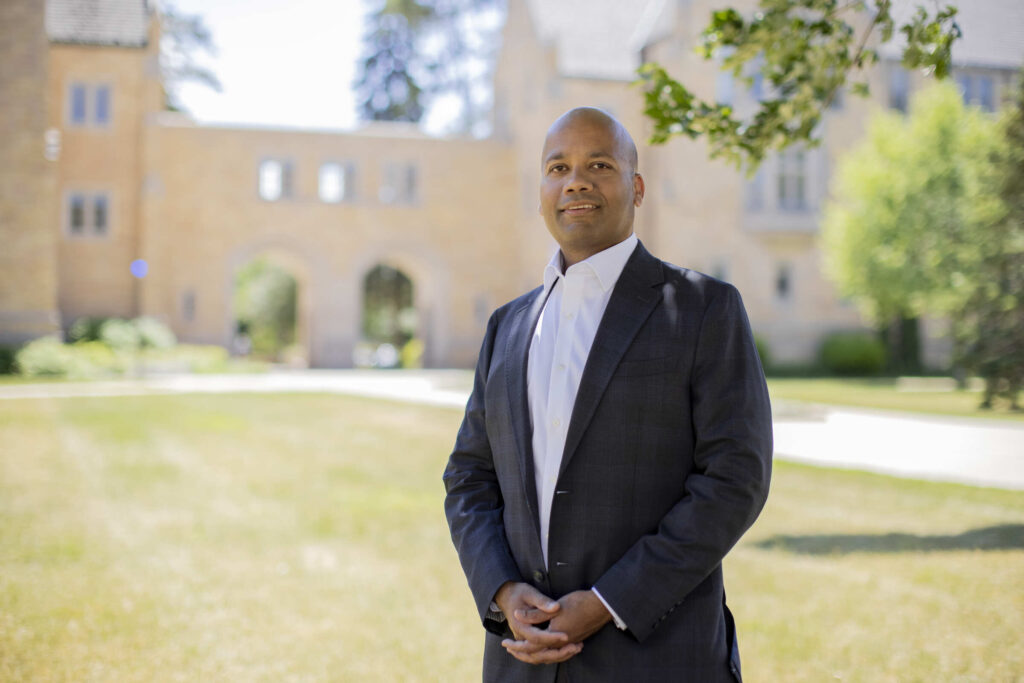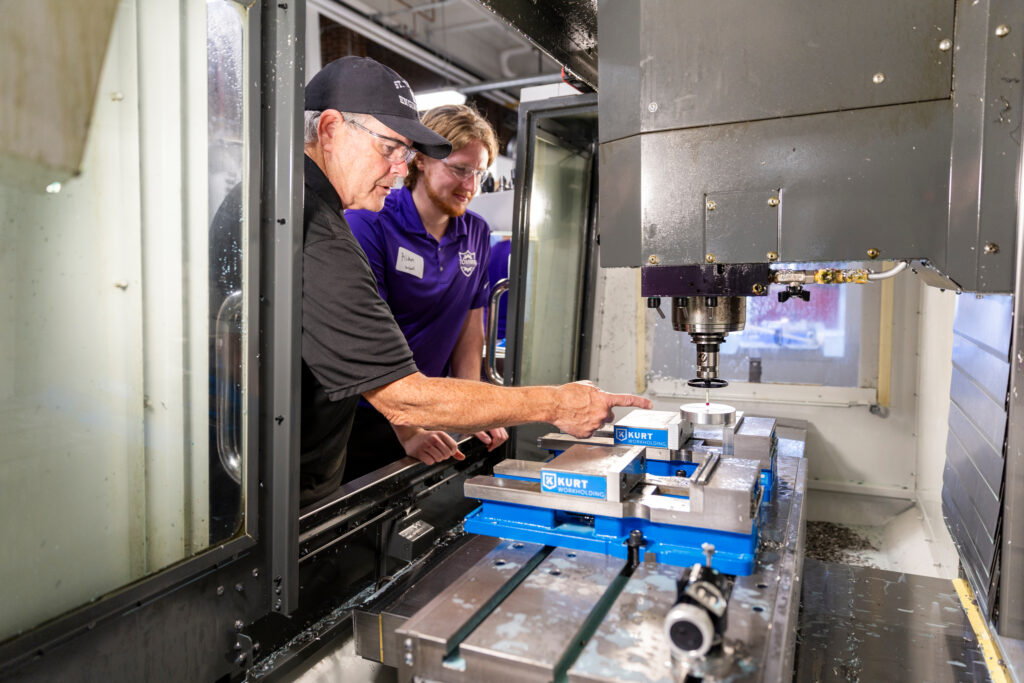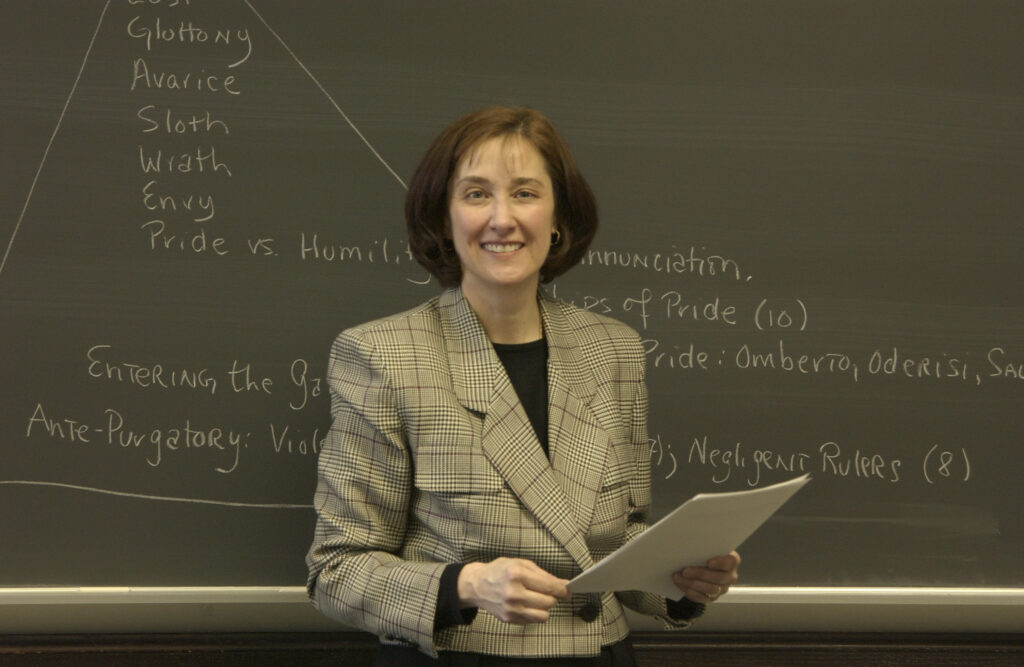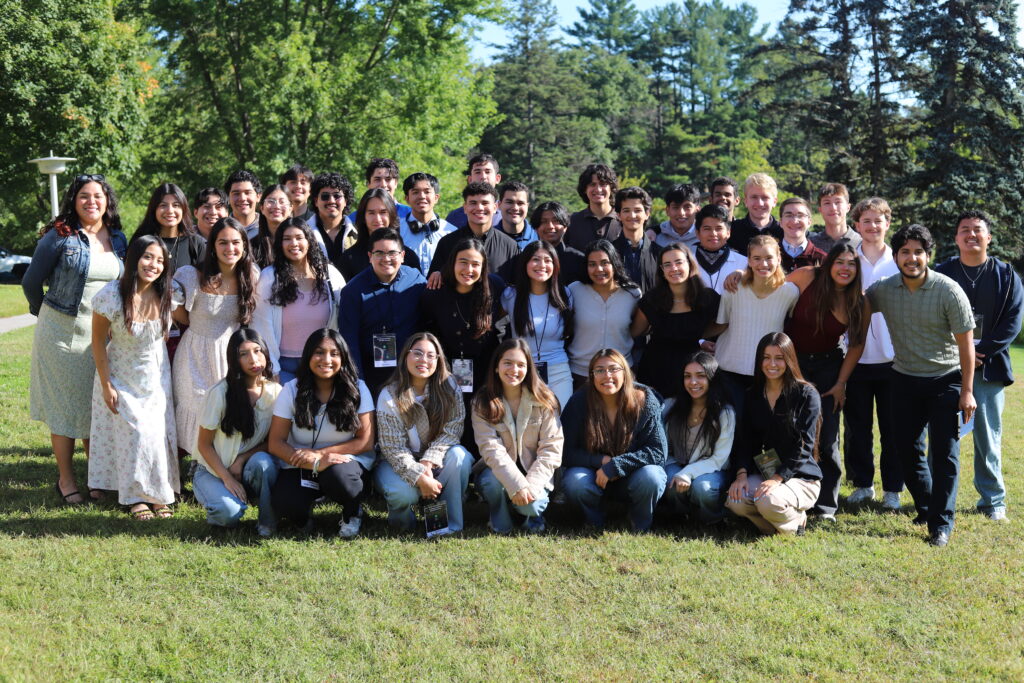Master’s degree student Renee Mueggenborg says the struggle for women in software and data science is best summarized by a quote from a familiar character in the children’s book Through the Looking-Glass.
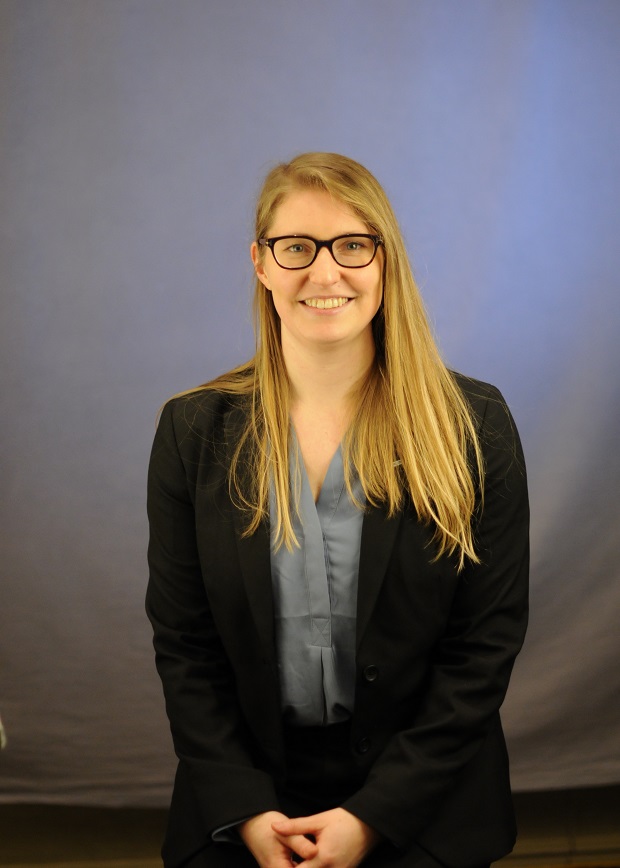
“Queen of Hearts says something like, ‘You have to run to stay in place,’ and I think with diversity and inclusion, that is absolutely true,” Mueggenborg said. “The problems are so pre-baked into our society that unless you’re constantly working toward ensuring that voices are heard and people are included, it’s one of those things that will fall to the wayside.”
The Red Queen’s full quote from the Lewis Carroll classic sequel takes the metaphor a step further. “It takes all the running you can do to keep in the same place,” said the Red Queen to Alice in Wonderland. “If you want to get somewhere else, you must run at least twice as fast as that!”
At the University of St. Thomas School of Engineering, women pursuing a master’s degree in software and data science are part of the next generation of developers breaking into a traditionally male-dominated field. In a world increasingly influenced by machine learning, the growing enrollment of women in the School of Engineering promises to deliver more equitable outcomes.
Future technologies are only as good as the data sets they utilize and the architects who chose them. “For machine learning, you’re using a training set of data. Think about the data that we have historically,” Mueggenborg said. “Who is included, who isn’t, and who will be focused on with what we’ve gathered.”
“I am hoping that by moving into this field that I can help pave the way for others who are just as, if not more, diverse than me,” Mueggenborg said. “Fostering an inclusive and accepting environment encouraging those of diverse backgrounds to speak up is important to me.”
She added, “This is not just in terms of equity, but even if you look at it from a business perspective. It is essential that we include as many diverse voices and lived experiences as possible.
“One of my biggest concerns is that a lot of the stuff that’s being done in the field of AI and machine learning is so new that we don’t actually understand the implications,” Mueggenborg said. “When you consider the pools of data AI is pulling from, there is concern that we aren’t including a larger, more diverse group of people that are representative of the population that we’re working for.”
Amelia McNamara, PhD, a computer and information science professor at the University of St. Thomas, agrees that a lack of diversity in the architecture of AI and machine learning can often lead to unintended consequences.
“Machine learning is being used to make huge decisions about peoples’ lives, whether that’s who is let out on bail and who is held before trial, who gets approved for a mortgage, or who is selected for an interview,” McNamara said. “A lot of people think that allowing a computer to make those decisions will lead to less bias, because a computer could be more impartial than a human. But because the models are trained on past data, they typically end up reinforcing past biases unless the algorithm designer has been very intentional.”
For McNamara, the growing numbers of women in the field will lead to outcomes that more accurately reflect reality. “Diverse teams lead to better results in general, but in particular it can be important to have a wide range of people in the room when designing algorithms,” McNamara said. “One example I often think of is Joy Buolamwini, a computer science researcher and Black woman, who realized that facial recognition software wasn’t detecting darker-skinned faces.”
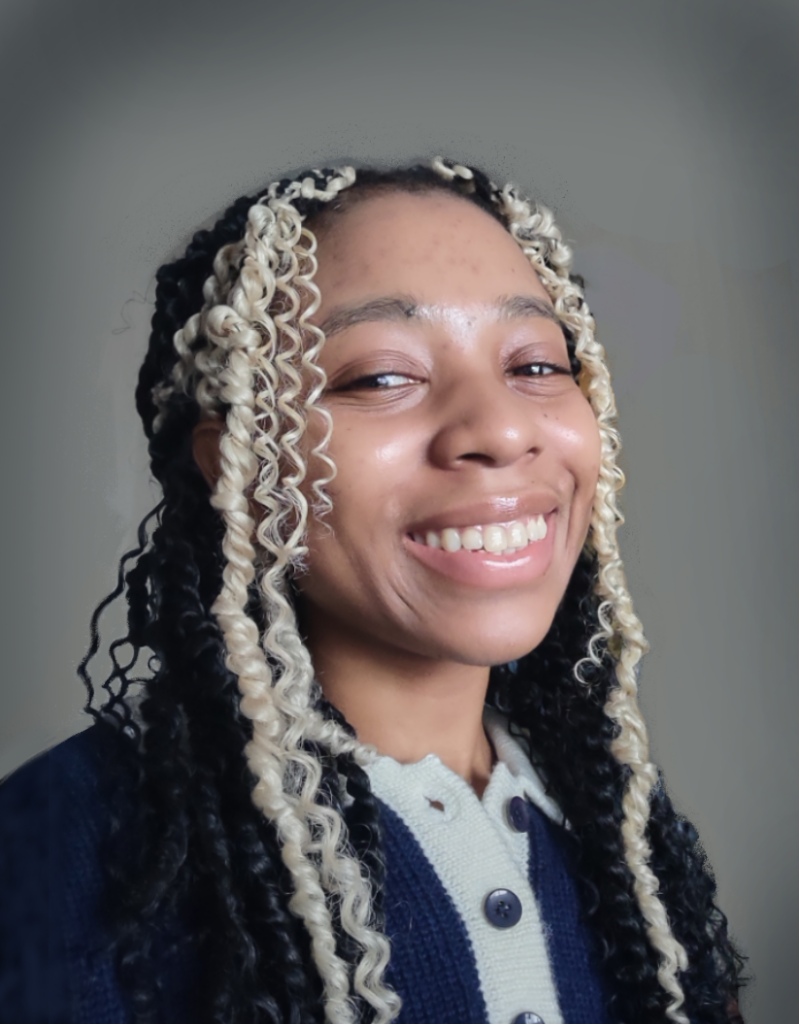
When Panje Nambao graduates in 2024 with her master’s in software design and data science, she intends to focus on developing games for users with disabilities. A lifelong gamer, Nambao recognized early on that jobs in the gaming industry were dominated by men, and the games they offered reflected that reality.
“I feel like it goes beyond just gender,” Nambao said about the often-overlooked opportunity cost to exclusion. “Every individual has something unique to bring to the table. If you exclude someone from a field, you never know what you’re missing out on. You never know what kind of innovations somebody could help develop in that space.”
Nambao and Mueggenborg are beneficiaries of a scholarship made possible by phData, Inc., an international firm based in Minneapolis that provides end-to-end services for machine learning and data analytics. For phData Co-founder and Chief Data Officer Mac Nolan, the scholarship is more than an exercise in corporate stewardship. Nolan sees the scholarship as an investment in the pipeline of future employee candidates and the benefit that the diversity in those candidates can offer to future clients. “A lot of our employees have been recruited directly out of the programs at St. Thomas. I’ve had a really good pipeline of talent that has come out of St. Thomas,” Nolan said. “We are very eager and bullish on investing in getting more women involved in STEM careers.”
As a senior-level executive, Nolan is keenly aware of the tangible benefit that diversity of experience can offer. “We’re an extremely diverse company, and that’s been a superpower for us. Our customers have greatly benefited from the diversity that we bring to our solutions to help them be successful,” Nolan said. “phData is all in on ensuring that there’s equal opportunity in the STEM space.”
A changing field
Julie Denning is the information security risk and compliance manager for U.S. Bank and an adjunct professor for the University of St. Thomas School of Engineering. After earning her master’s degree in software engineering from the University of St. Thomas in 2003, Denning returned in 2013 to develop a curriculum for Information Technology Security and Networking, a required course in the software engineering degree.
Over the years, Denning has noticed an increase in the number of women entering the field and women rising to positions of authority, but she is also quick to point out that a stigma remains, and the struggle for equal footing is ever-present.
Nolan, for example, said he has witnessed instances of latent sexism during presentations to several clients. For Nolan, this is a line in the sand. “We’ve come down pretty hard on customers to say, hey, before, it was mentioned by a female, you didn’t trust or like it, and now the mere fact that it was mentioned by a male, and now you trust it. That’s ridiculous, and that’s unacceptable.” He explains to his clients, “You’re getting an expert opinion here that has the backing of phData, no matter who comes up with the idea.”
“I am incredibly lucky to be able to pursue a graduate degree, and not a lot of people have that opportunity. One of the biggest hurdles for people who are minorities, people of color, women, especially in fields that are so technical, is the fact that it’s so hard to get a seat at the table,” Mueggenborg said. “To get a master’s degree from an institution like the University of St. Thomas, and for that institution to say that you’ve earned that degree, helps to ensure that you get a chance at a seat at that table.”
